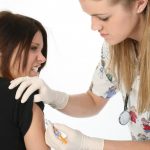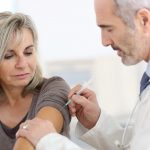On January 10, 2017, the American Academy of Pediatrics (AAP) issued a press release to express its opposition to a federal commission that has been proposed by the Trump administration to examine vaccine safety and efficacy. The AAP argues that since we already know that vaccines are safe and effective, therefore there is no need for further examination into their safety and efficacy.
This argument, however, begs the question — it presumes in the premise the proposition to be proven (the petitio principii fallacy). And the press release itself illustrates why, apart from the question of whether there should be a federal commission, critical examination of public vaccine policy is very much warranted.
In its press release, among other things, the AAP stated that:
- Vaccines prevent cancer.
- Claims that vaccines are linked to autism “have been disproven by a robust body of medical literature”.
- Claims that vaccines “are unsafe when administered according to the [CDC’s] recommended schedule” have likewise “been disproven by a robust body of medical literature”.
According to the AAP, its own claims are backed by solid science. Yet when asked whether it could provide citations from the medical literature to support its claims, the AAP first failed to do so, then essentially offered a “No comment” when pressed for a comment about its failure to do so.
With respect to the claim that vaccines prevent some forms of cancer, the AAP was asked:
- Can you please direct me to any studies in the peer-reviewed medical literature showing any vaccine prevents cancer?
With respect to the other two, the AAP was asked the following questions:
- Can you please direct me to the studies you are referring to in this body of literature that took into account the possibility of a genetically susceptible subpopulation?
- Can you please point me to the studies in this body of literature that have compared health outcomes, including but not limited to developmental regression (i.e., autism), for children who’ve receive the CDC’s full schedule of vaccinations with children who’ve remained completely unvaccinated?
An initial email to the AAP containing these questions went unanswered.
The email was followed up with a phone call. Lisa Black, the AAP’s Media Relations Manager, assured that she would get back with answers to the questions. In a subsequent email, Ms. Black replied, “Please see information that AAP has posted for parents on this page”, which was followed by a link to a list of studies on the website HealthyChildren.org.
However, none of the listed studies on that page supports the AAP’s claim that “vaccines prevent … forms of cancer”.
None apparently considered the possibility of a susceptible subpopulation with a genetic susceptibility to adverse reactions to vaccines.
And none compared health outcomes of fully vaccinated children with completely unvaccinated children.
The list provided does contain numerous studies finding no association between vaccines and autism, but even the listed safety review by the Institute of Medicine (IOM) doesn’t go so far as to say that the hypothesis has been “disproven”.
On the contrary, the IOM acknowledges that it is biologically plausible that vaccines might cause autism in a genetically susceptible subpopulation, but characterizes this hypothesis is still “speculative” and “unsubstantiated”.
That is a world apart from saying it has been “disproven”.
One would think that the IOM’s conclusion, if its inquiry was a scientific one, would be that since this is such an important question and this specific hypothesis is plausible and not well studied, therefore there should be further study into this question of whether vaccines could trigger autism at least in some children with a genetic predisposition to vaccine injury.
But rather than calling for more research into this area, the IOM actually advocated that no further studies to test this hypothesis be done. Its stated reason for this was partly medical, but at least equally political — and certainly favorable to the profits of the pharmaceutical industry. The IOM’s reason was:
Using an unsubstantiated hypothesis to question the safety of vaccination and the ethical behavior of those governmental agencies and scientists who advocate for vaccination could lead to widespread rejection of vaccines and inevitable increases in incidences of serious infectious diseases like measles, whooping cough, and Hib bacterial meningitis.
In other words, since studying this hypothesis further would undermine public vaccine policy with its one-size-fits-all approach to disease prevention, therefore no further research to test the biologically plausible hypothesis should be done.
The AAP was sent a follow up email noting that none of the studies listed appeared to support the claims it made in the press release. The AAP was welcomed to correct the record, but did not dispute the observation that none of the studies listed showed that vaccines can prevent cancer, considered genetic susceptibility to vaccine injury, or compared health outcomes for vaccinated and unvaccinated children.






